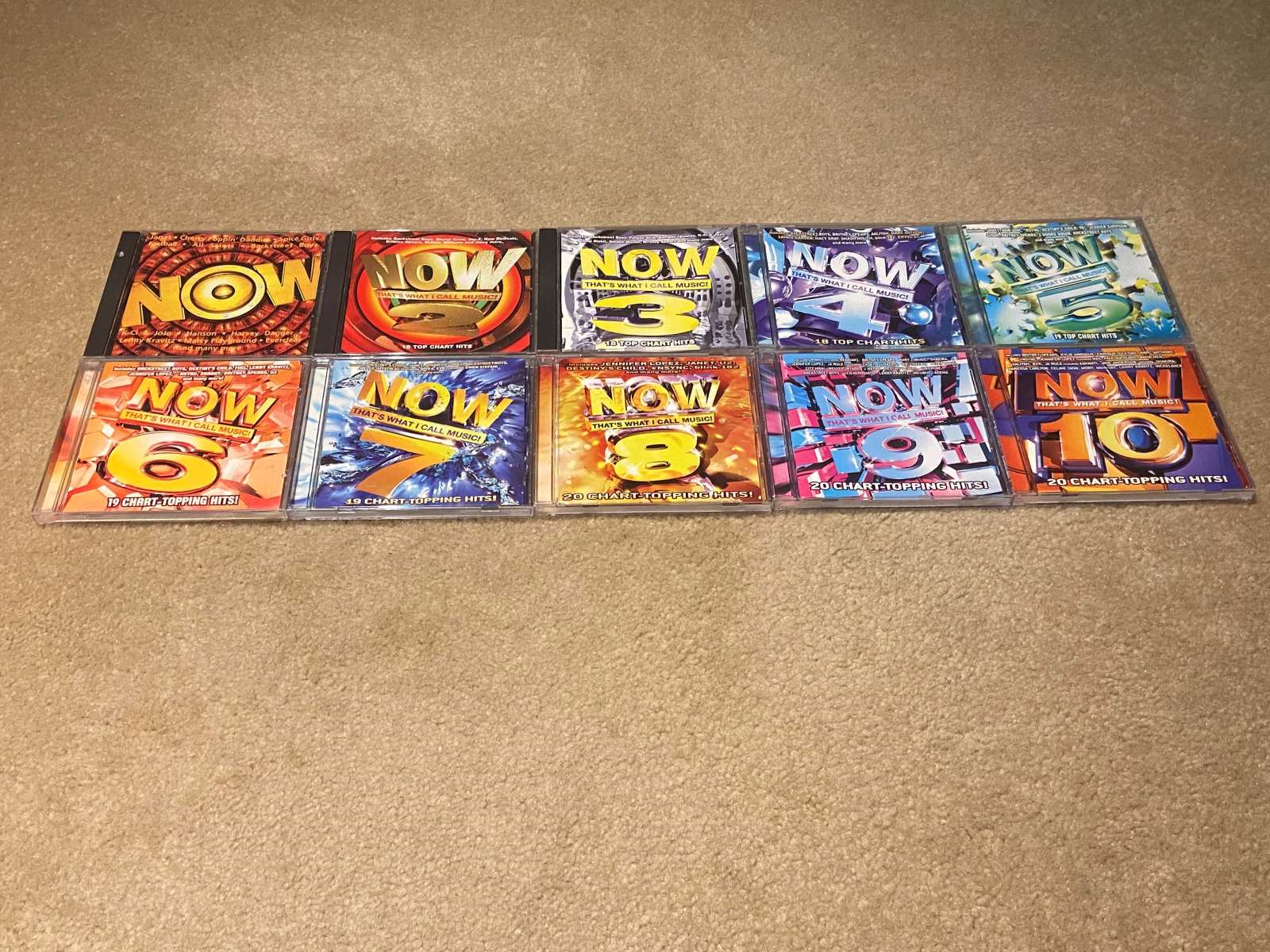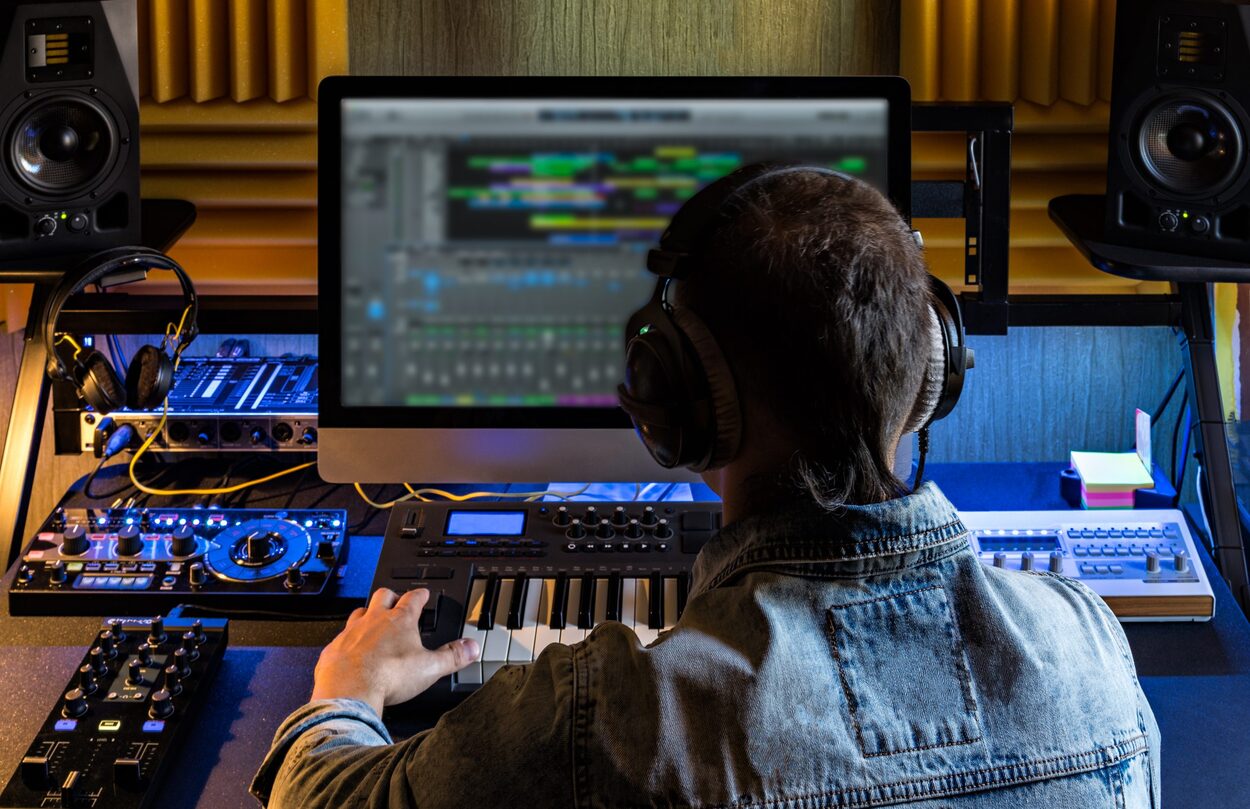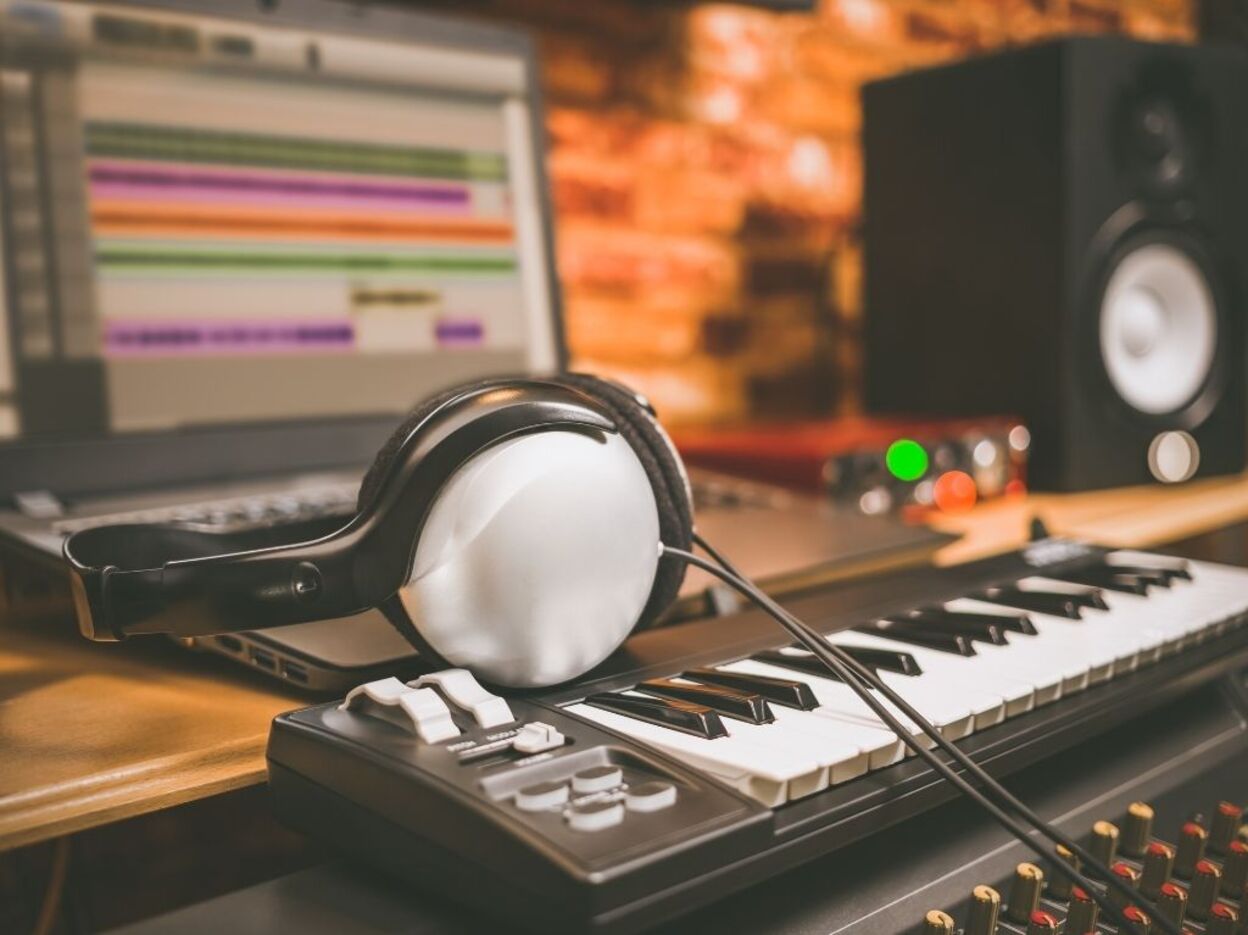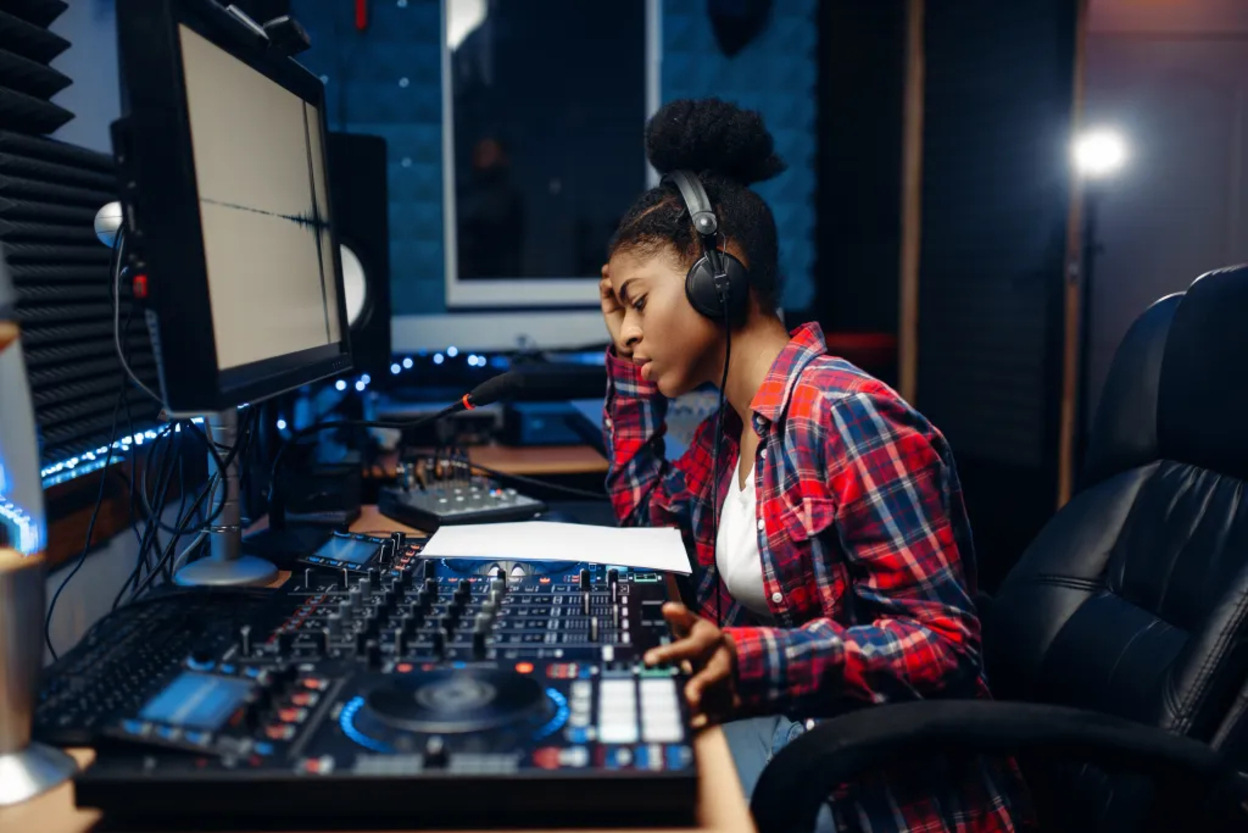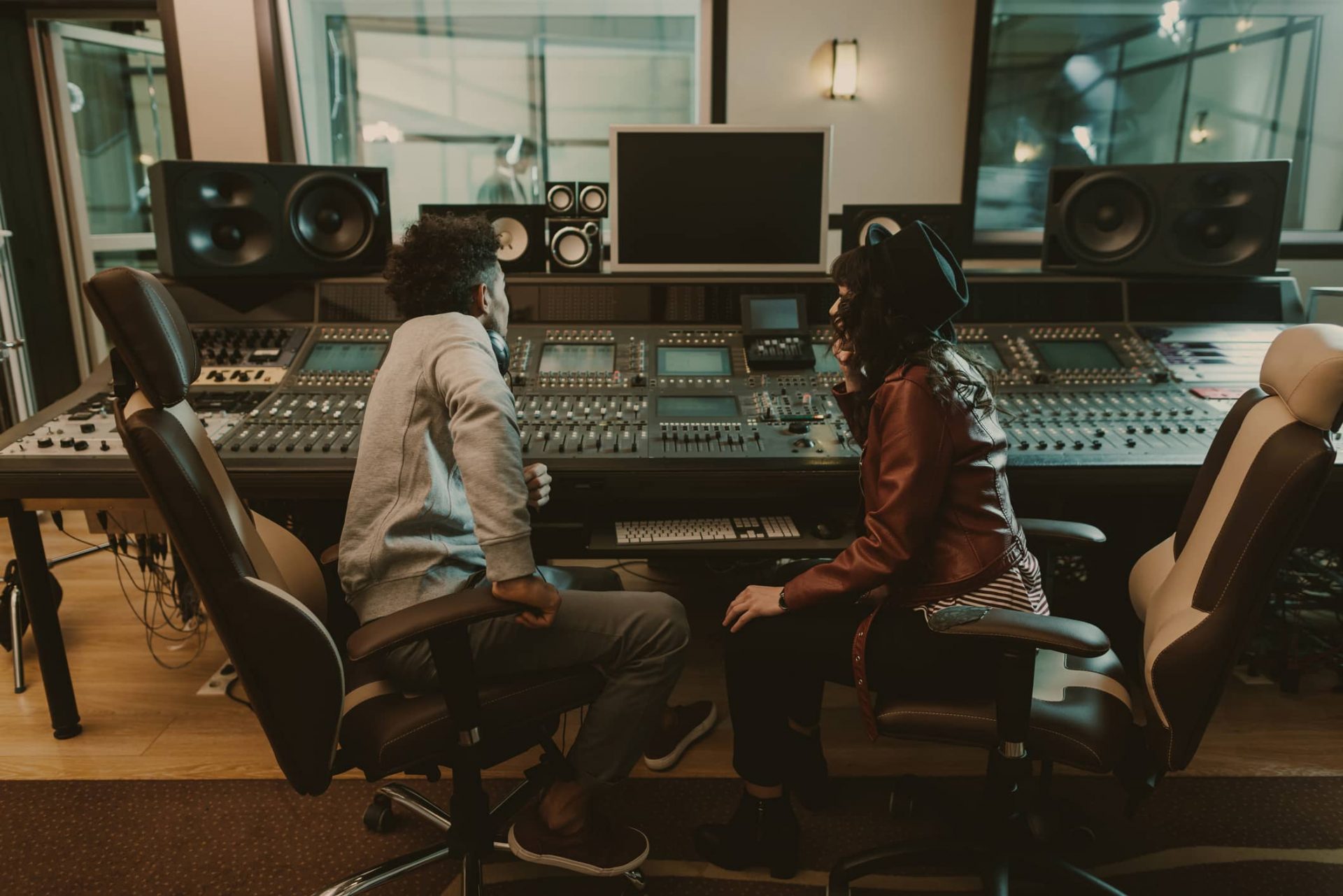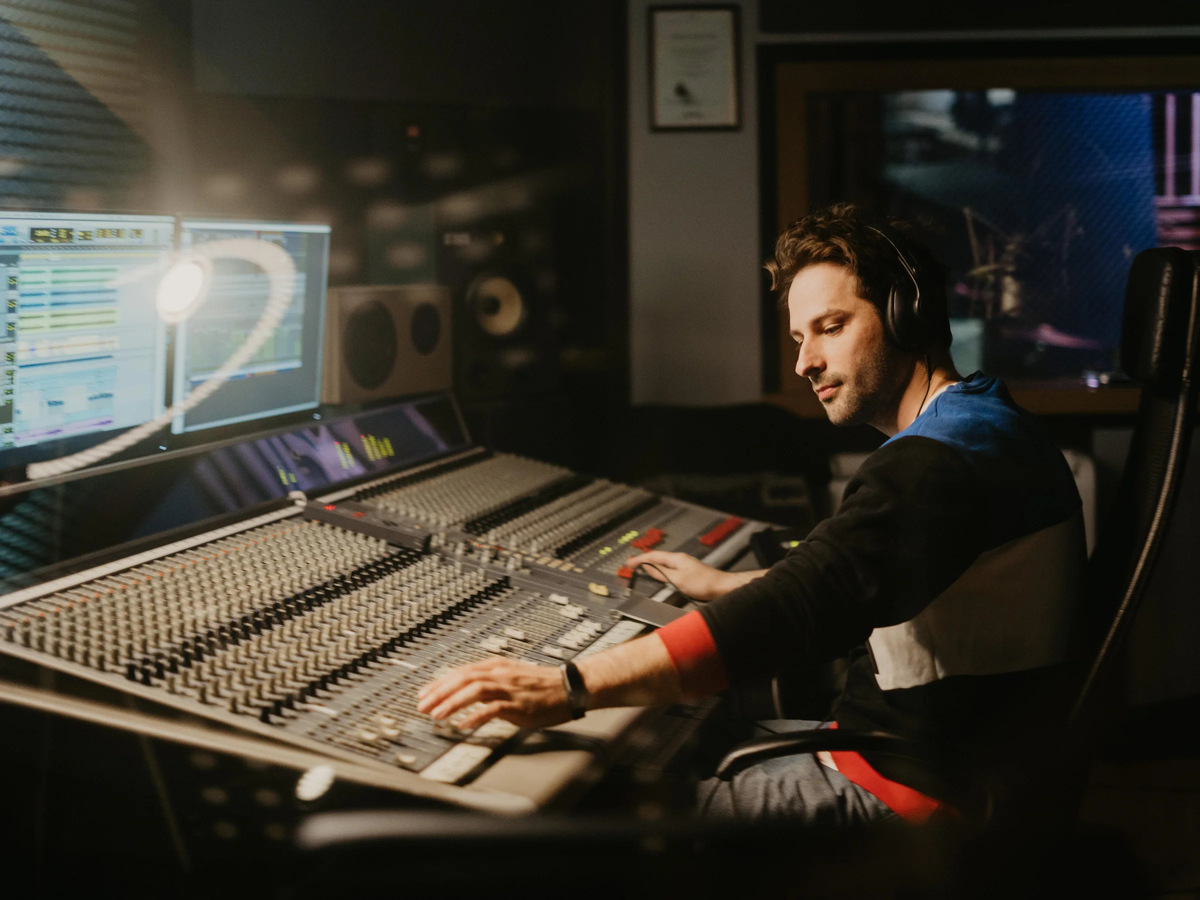Home>Production & Technology>Producer>How To Become A Record Label Music Producer


Producer
How To Become A Record Label Music Producer
Published: March 5, 2024
Learn how to become a successful music producer and launch your career in the music industry. Explore the essential skills and steps to become a record label music producer. Unlock your potential as a music producer today!
(Many of the links in this article redirect to a specific reviewed product. Your purchase of these products through affiliate links helps to generate commission for AudioLover.com, at no extra cost. Learn more)
Table of Contents
Introduction
Becoming a record label music producer is a dream for many music enthusiasts who are passionate about creating and shaping the sound of the next generation of artists. It's a role that requires a unique blend of creativity, technical expertise, and industry knowledge. In this article, we'll delve into the multifaceted world of record label music production, exploring the skills, experiences, and pathways that can lead aspiring individuals to thrive in this dynamic and influential position.
As the driving force behind the creation of music, record label music producers play a pivotal role in the music industry. They are responsible for overseeing the entire production process, from working with artists to develop their sound and vision to managing the technical aspects of recording, mixing, and mastering the final tracks. Their ability to understand and translate the artist's vision into a polished and marketable product is essential in shaping the landscape of popular music.
To embark on the journey of becoming a record label music producer, one must possess a deep passion for music and an unwavering commitment to honing their craft. This profession demands a keen ear for musical nuances, a strong sense of rhythm and melody, and a profound understanding of music theory and composition. Additionally, proficiency in using recording equipment, digital audio workstations, and other production tools is crucial for bringing creative ideas to life in the studio.
Beyond technical skills, successful record label music producers are adept at building meaningful connections within the music industry. They collaborate with artists, songwriters, engineers, and industry professionals to create a collaborative and innovative environment that fosters artistic growth and excellence. The ability to communicate effectively, understand diverse musical genres, and adapt to the evolving trends in the industry are essential for thriving in this competitive field.
In the subsequent sections, we will explore the intricacies of this profession, from developing musical skills and knowledge to gaining valuable experience and training. By understanding the multifaceted nature of record label music production, aspiring producers can chart a strategic course towards achieving their career aspirations in the vibrant and ever-evolving world of music.
Understanding the Role of a Record Label Music Producer
The role of a record label music producer is multifaceted and integral to the success of an artist and the overall music industry. At its core, a record label music producer is responsible for overseeing the entire production process, from the initial stages of conceptualizing a song to the final stages of mastering and preparing it for release. This involves working closely with artists to understand and refine their musical vision, guiding them through the creative process, and ensuring that the final product aligns with the artist's artistic direction and the label's brand.
A record label music producer serves as a creative and technical collaborator, offering valuable insights and expertise to enhance the musicality and commercial appeal of a song or album. They are involved in making critical decisions regarding the arrangement, instrumentation, and overall sound of the music, striving to capture the essence of the artist's expression while meeting the standards of the music market.
In addition to the creative aspects of music production, record label music producers are also responsible for managing the logistical and technical aspects of the recording process. This includes selecting recording studios, coordinating sessions with session musicians, overseeing the recording and mixing processes, and ensuring that the final product meets the label's quality standards.
Furthermore, record label music producers often play a pivotal role in nurturing and developing emerging talent. They provide guidance and mentorship to artists, helping them refine their skills, explore new creative directions, and navigate the complexities of the music industry. This mentorship extends beyond the studio, as producers often support artists in making strategic career decisions and building their professional networks.
In essence, the role of a record label music producer is a blend of artistic creativity, technical proficiency, and mentorship. It requires a deep understanding of music theory, production techniques, and industry trends, coupled with the ability to communicate effectively, inspire creativity, and adapt to the diverse needs of artists and the ever-changing landscape of popular music. By embracing these multifaceted responsibilities, record label music producers play a vital role in shaping the sonic landscape of today and tomorrow, leaving an indelible mark on the music industry.
Developing Musical Skills and Knowledge
Developing musical skills and knowledge is a fundamental step for individuals aspiring to become record label music producers. This journey begins with a deep passion for music and a relentless pursuit of mastering the technical and creative aspects of music production. To excel in this dynamic field, aspiring producers must cultivate a diverse set of musical skills and acquire a comprehensive understanding of music theory, composition, and production techniques.
The foundation of musical proficiency lies in a thorough comprehension of music theory and harmony. This encompasses understanding scales, chords, intervals, and how they interplay to create compelling melodies and harmonies. A strong grasp of rhythm and timing is equally essential, as it forms the backbone of musical expression and provides the framework for crafting engaging musical arrangements.
In addition to theoretical knowledge, honing practical skills in music production is paramount. This involves familiarizing oneself with digital audio workstations (DAWs), recording equipment, and sound processing tools. Proficiency in audio editing, mixing, and mastering techniques is crucial for shaping and refining the sonic characteristics of recorded music. Moreover, staying abreast of technological advancements in music production software and hardware empowers producers to innovate and adapt to evolving industry standards.
Furthermore, developing a discerning ear for sound is indispensable for record label music producers. This entails actively listening to a wide array of musical genres, discerning sonic nuances, and understanding the emotional impact of different musical elements. By cultivating a deep appreciation for diverse musical styles and sonic textures, producers can enrich their creative palette and infuse their productions with originality and depth.
Collaborating with musicians and songwriters to expand one's musical horizons is equally invaluable. Engaging in musical collaborations fosters a deeper understanding of different musical perspectives, enhances creative adaptability, and broadens one's artistic sensibilities. This collaborative spirit not only enriches the creative process but also nurtures a network of talented individuals who can contribute to future music projects.
In essence, developing musical skills and knowledge is an ongoing journey of exploration, practice, and continuous learning. By immersing oneself in the rich tapestry of music, mastering technical tools, and fostering collaborative relationships, aspiring record label music producers can lay a strong foundation for a successful and fulfilling career in the vibrant world of music production.
Building a Network in the Music Industry
Building a robust network in the music industry is a pivotal step for aspiring record label music producers. Networking serves as a conduit for forging meaningful connections with artists, industry professionals, and fellow collaborators, thereby creating opportunities for collaboration, mentorship, and career advancement. The music industry thrives on relationships, and a well-cultivated network can open doors to creative partnerships, industry insights, and professional growth.
One of the most effective ways to build a network in the music industry is through active participation in music-related events, such as industry conferences, music festivals, and networking mixers. These gatherings provide a fertile ground for meeting artists, producers, A&R representatives, and other industry insiders. Engaging in conversations, exchanging ideas, and showcasing one's passion for music can leave a lasting impression and lay the groundwork for future collaborations.
Utilizing social media platforms and online communities tailored to music professionals is another powerful avenue for expanding one's network. Platforms like LinkedIn, SoundCloud, and industry-specific forums offer opportunities to connect with like-minded individuals, share creative work, and stay informed about industry trends. Engaging in online discussions, contributing valuable insights, and showcasing one's portfolio can attract attention and foster connections with potential collaborators and industry influencers.
Attending music industry workshops and seminars presents a valuable opportunity to learn from seasoned professionals while expanding one's network. These events often feature panel discussions, workshops, and networking sessions, offering a conducive environment for building relationships and gaining insights into the inner workings of the music business. Actively participating in these events, asking thoughtful questions, and seeking mentorship can pave the way for valuable connections and mentorship opportunities.
Moreover, fostering relationships with emerging artists and emerging industry professionals can yield long-term benefits. Collaborating on independent projects, providing support and feedback, and championing each other's work can establish a strong foundation for future collaborations and mutual career advancement.
In essence, building a network in the music industry is a strategic investment in one's career as a record label music producer. By actively engaging in industry events, leveraging online platforms, and nurturing relationships with fellow music enthusiasts, aspiring producers can cultivate a diverse and supportive network that propels their creative endeavors and opens doors to new and exciting opportunities.
Gaining Experience and Training
Gaining experience and training is a pivotal phase in the journey of aspiring record label music producers. This stage serves as a transformative period where theoretical knowledge is translated into practical skills, and creative vision is honed through hands-on experience in real-world music production settings. Here's a comprehensive exploration of the steps involved in gaining experience and training in the pursuit of becoming a proficient record label music producer.
Formal Education and Training Programs
Formal education in music production, audio engineering, or related fields provides a structured framework for acquiring essential technical skills and theoretical knowledge. Enrolling in accredited music production programs or audio engineering courses equips individuals with a solid foundation in recording techniques, sound design, music theory, and studio management. Furthermore, these programs often offer practical training in using industry-standard recording equipment and digital audio workstations, allowing aspiring producers to refine their technical prowess under the guidance of experienced instructors.
Internships and Assistant Roles
Securing internships or assistant positions at recording studios, production houses, or record labels offers invaluable hands-on experience in music production. By working alongside seasoned producers and engineers, aspiring producers gain firsthand exposure to the intricacies of studio operations, artist collaboration, and the technical aspects of music recording and mixing. This immersive learning environment provides a platform for applying theoretical knowledge in real-world scenarios, refining critical listening skills, and understanding the nuances of producing music across diverse genres.
Independent Projects and Collaborations
Engaging in independent music projects and collaborative endeavors serves as a catalyst for practical skill development and creative exploration. Producing music for independent artists, creating original compositions, or collaborating with fellow musicians fosters a spirit of entrepreneurialism and artistic experimentation. These projects offer the freedom to apply creative concepts, experiment with production techniques, and gain insights into the dynamics of working with diverse musical talents, thereby broadening one's creative horizons and refining their production style.
Continuous Learning and Skill Enhancement
The pursuit of excellence in music production necessitates a commitment to continuous learning and skill enhancement. Attending workshops, masterclasses, and industry seminars led by renowned producers and industry experts provides opportunities to glean insights into advanced production techniques, industry trends, and emerging technologies. Additionally, seeking mentorship from established producers and actively seeking feedback on one's work fosters a culture of continuous improvement, propelling aspiring producers towards mastery in their craft.
In essence, gaining experience and training as a record label music producer involves a multifaceted approach that encompasses formal education, practical experience, independent projects, and a relentless pursuit of knowledge and skill refinement. By embracing these avenues for growth, aspiring producers can navigate the dynamic landscape of music production with confidence, creativity, and a deep-rooted commitment to excellence.
Securing a Position as a Record Label Music Producer
Securing a position as a record label music producer is the culmination of dedicated effort, honed skills, and strategic career navigation. Aspiring producers must navigate a competitive landscape, showcasing their talent, expertise, and industry acumen to secure coveted roles within record labels. This pivotal stage in their journey involves a blend of proactive networking, showcasing a standout portfolio, and demonstrating a deep understanding of the evolving music industry.
One of the primary avenues for securing a position as a record label music producer is through proactive networking and relationship building. Leveraging connections established through industry events, collaborations, and online platforms can open doors to potential opportunities within record labels. Building a robust network of industry professionals, including artists, A&R representatives, and fellow producers, creates a fertile ground for discovering potential openings and receiving referrals for positions.
In addition to networking, showcasing a standout portfolio of work is instrumental in capturing the attention of record labels. A diverse and impressive body of work, encompassing successful music productions, collaborations with notable artists, and projects that demonstrate creative versatility, serves as a compelling testament to a producer's capabilities. A well-curated portfolio, supported by positive testimonials from artists and industry peers, can serve as a powerful tool for piquing the interest of record label decision-makers.
Furthermore, staying abreast of industry trends, technological advancements, and emerging musical genres is essential for positioning oneself as a forward-thinking and adaptable producer. Demonstrating a keen understanding of the market demands and showcasing an ability to innovate and push creative boundaries can distinguish aspiring producers in the eyes of record labels seeking visionary and commercially astute talent.
Seeking out mentorship from established producers and industry veterans can also provide invaluable guidance and insights into navigating the intricacies of securing a position within a record label. Learning from the experiences and expertise of seasoned professionals can offer aspiring producers a strategic advantage in positioning themselves as valuable assets to record labels.
Ultimately, securing a position as a record label music producer requires a proactive and multifaceted approach that encompasses networking, portfolio development, industry acumen, and a commitment to continuous growth and innovation. By strategically leveraging their skills, connections, and industry knowledge, aspiring producers can position themselves as indispensable contributors to the vibrant and ever-evolving landscape of record label music production.
Conclusion
In conclusion, the journey to becoming a record label music producer is a dynamic and multifaceted pursuit that demands a fusion of technical expertise, creative vision, and industry acumen. It is a path characterized by unwavering passion, relentless dedication to honing musical skills, and a strategic approach to building a robust network within the music industry. Aspiring producers must navigate a landscape brimming with opportunities for growth, collaboration, and career advancement, all while staying attuned to the ever-evolving trends and demands of the music market.
The role of a record label music producer extends far beyond the confines of a studio; it embodies a commitment to nurturing artistic talent, shaping sonic landscapes, and leaving an indelible mark on the musical tapestry of our time. From developing a discerning ear for sound to refining technical proficiency in music production, the journey of becoming a record label music producer is a transformative odyssey that encompasses continuous learning, creative exploration, and a deep-seated passion for music.
Moreover, the process of gaining experience and training serves as a pivotal phase in the evolution of aspiring producers, providing them with the hands-on skills and industry insights necessary to thrive in the competitive realm of music production. Through formal education, internships, independent projects, and continuous skill enhancement, aspiring producers lay a solid foundation for realizing their creative potential and making meaningful contributions to the music industry.
Securing a position as a record label music producer represents the culmination of these efforts, where proactive networking, a standout portfolio, and a keen understanding of industry dynamics converge to open doors to coveted roles within record labels. By showcasing their talent, adaptability, and forward-thinking approach, aspiring producers position themselves as invaluable assets within the vibrant and ever-evolving landscape of record label music production.
In essence, the journey of becoming a record label music producer is a testament to the transformative power of music, the enduring spirit of creativity, and the unwavering dedication to shaping the future of popular music. It is a journey marked by resilience, creativity, and a relentless pursuit of excellence, where aspiring producers chart a course towards leaving an indelible imprint on the sonic fabric of the world.

